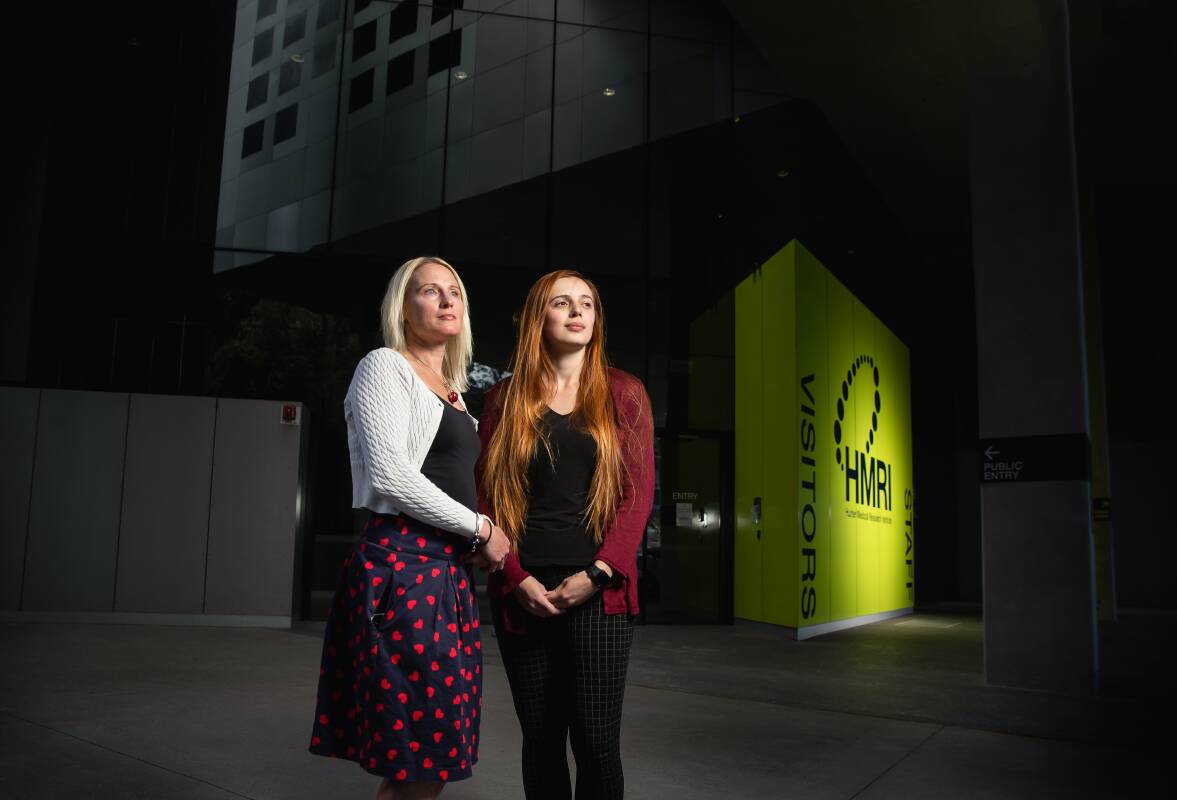
WORLD first research out of the Hunter could lead to more effective chemotherapy for people with breast cancer.
HMRI and University of Newcastle researchers have identified a protein that can be an indicator of whether "DNA-damaging therapies" will work or not. They believe the discovery could be an important first step in better targeting breast cancer treatment.
"Breast cancer has a really good response rate for the most part," Associate Professor Kelly Avery-Kiejda told the Newcastle Herald.
"But the biggest issue is that when people die from breast cancer, they die because of resistance to treatments and because of the development of metastases. So what we have been working on is finding ways to identify when this is going to happen."
Led by PhD researcher Luiza Steffens-Reinhardt, this investigative work narrowed in on smaller variants of a protein known as p53, which previous studies had shown to be present at "high levels" in breast cancer and had also been associated with cancer recurrence.
"We've found breast cancers are less sensitive to chemotherapy if they've got higher levels of this variant of the protein," Ms Steffens-Reinhardt said.
"A breast cancer that is resistant to treatment is impossible to cure. Therefore, there is an urgent need to improve therapies that target the cells responsible for resisting these therapies."
Ms Steffens-Reinhardt said inhibiting this variant could enhance people's responses to currently used cancer treatments.
The work, published in the Cell Death & Disease journal, has the potential to be expanded to inform the treatment of other cancers too, as she said p53 was a common cancer protein.
"It's a completely novel mechanism," Ms Steffens-Reinhardt said.
"I think it's really the first time it's been demonstrated in the world, especially in response to these DNA-damaging therapies that really hadn't been looked at before."
Breast cancer affects more than 19,000 women every year in Australia, and around a quarter of these people develop treatment resistance.
Prof Avery-Kiejda, who supervised Ms Steffens-Reinhardt's research, and said one-in-eight women in Australia developed breast cancer.
"While there is a 92 per cent survival rate, this doesn't take into account secondary cancers or metastases, which are essentially incurable," she said.
"If we can identify biomarkers that predict how well a patient will respond to certain therapies, we can then target the available therapies more effectively.
"The National Breast Cancer Foundation goal is zero deaths by 2030, and we want to be part of that.
"We want to try and make sure there are no deaths from breast cancer, because it's still the leading cause of cancer in women.
"If we can do something to enhance treatments, then we can lessen the burden of breast cancer in the community and, hopefully, increase chances of survival."







